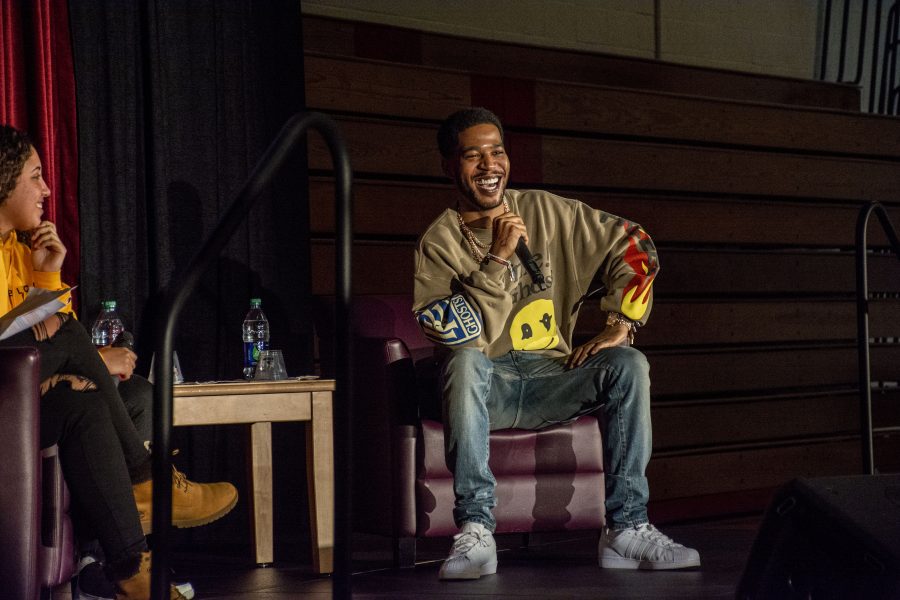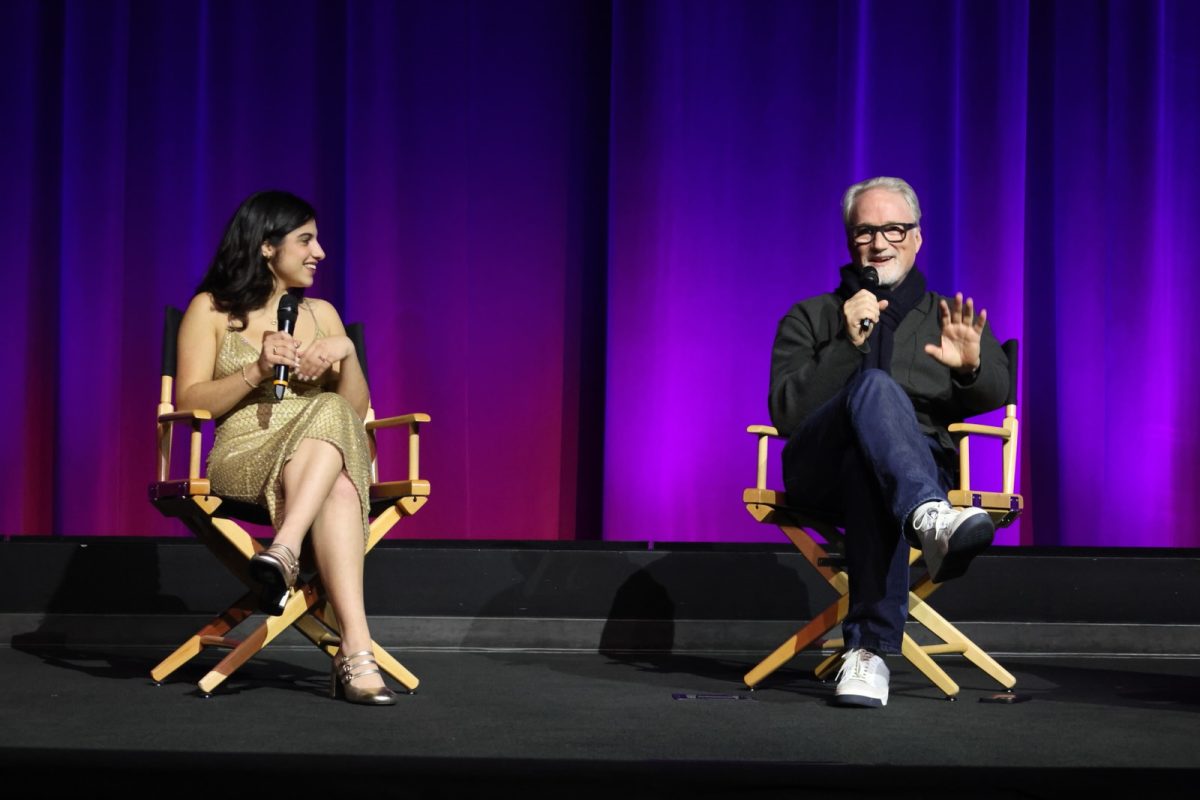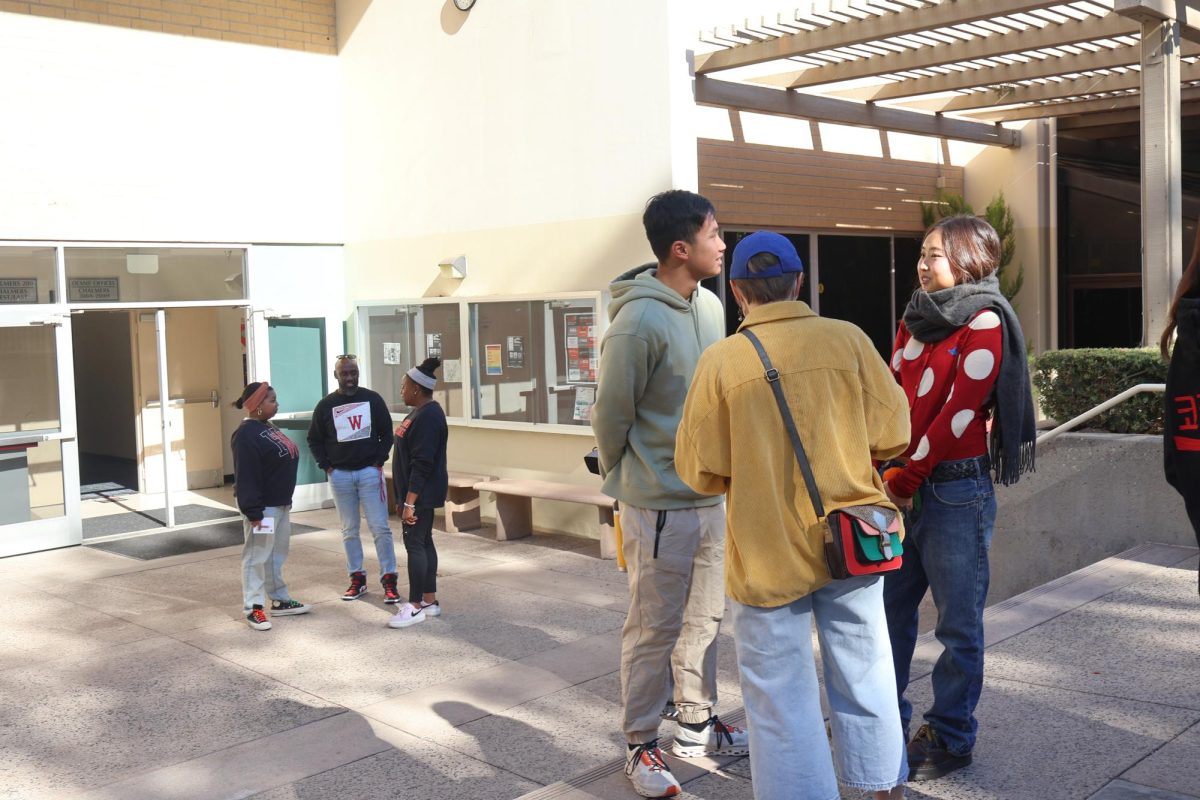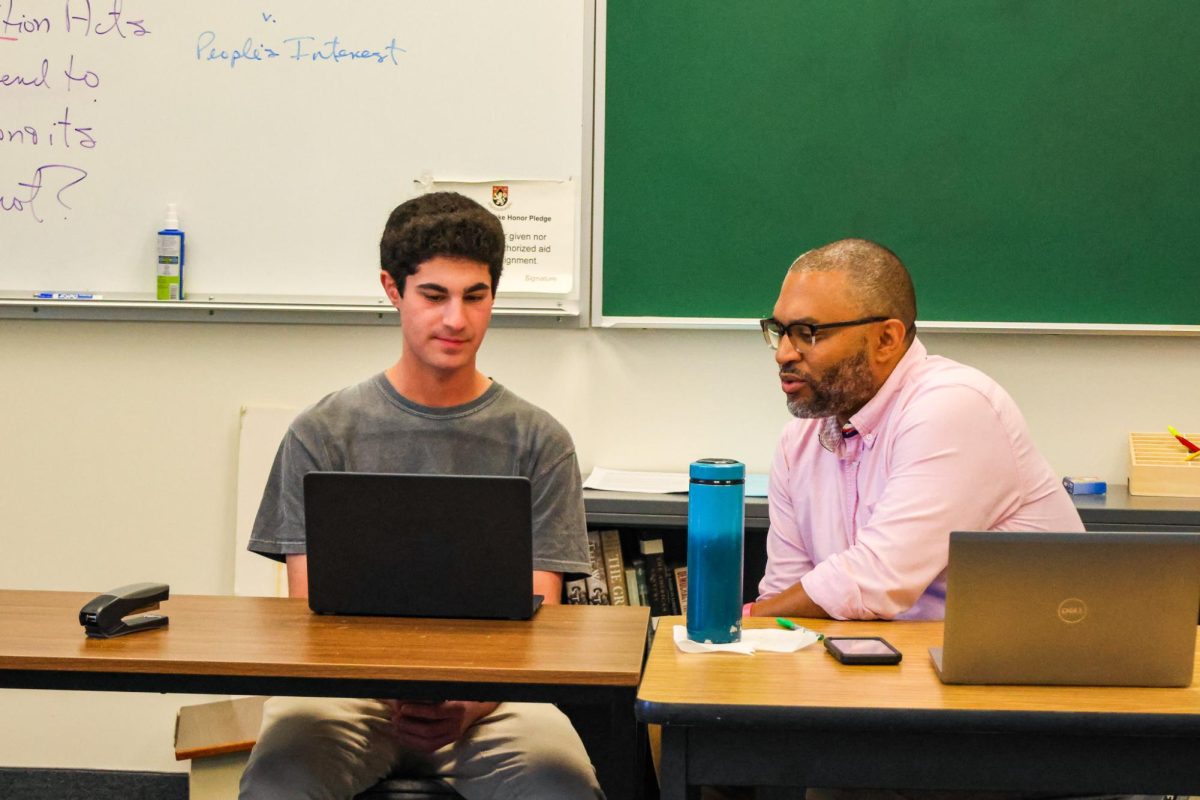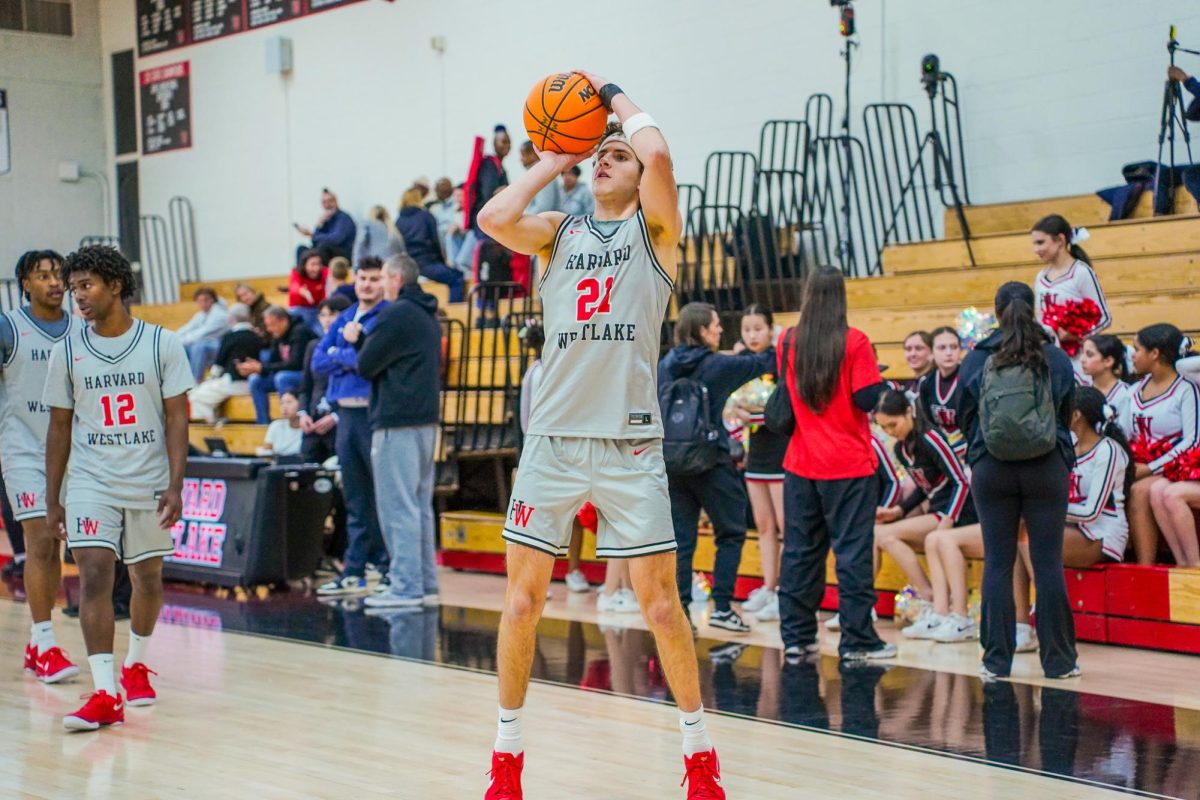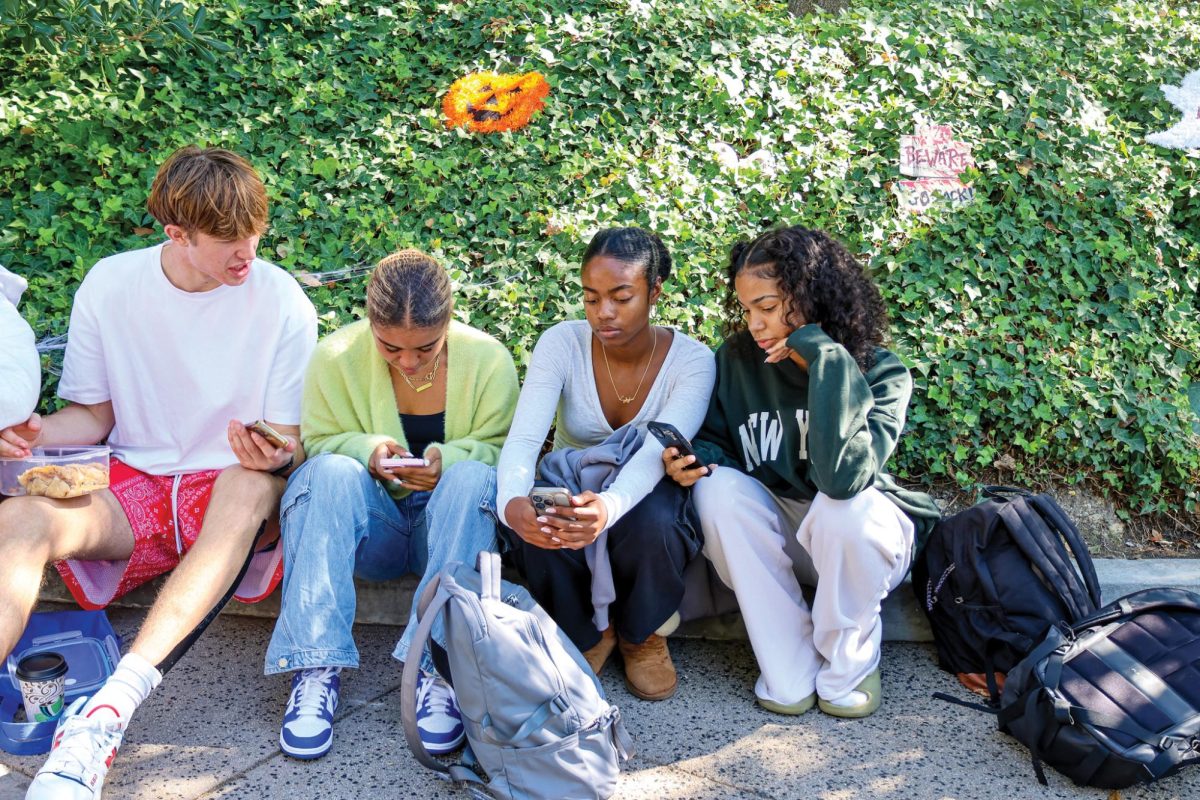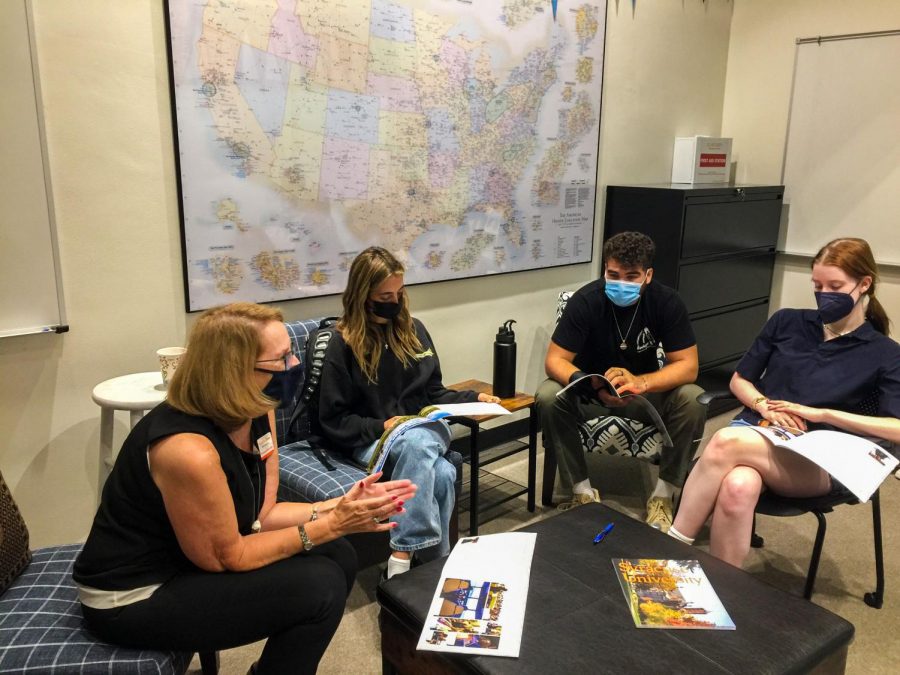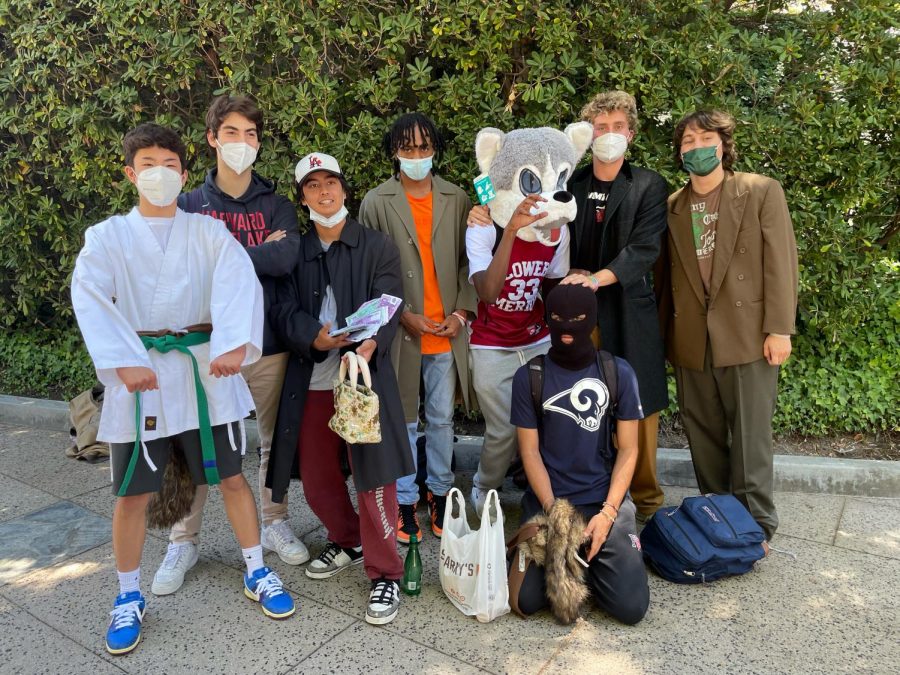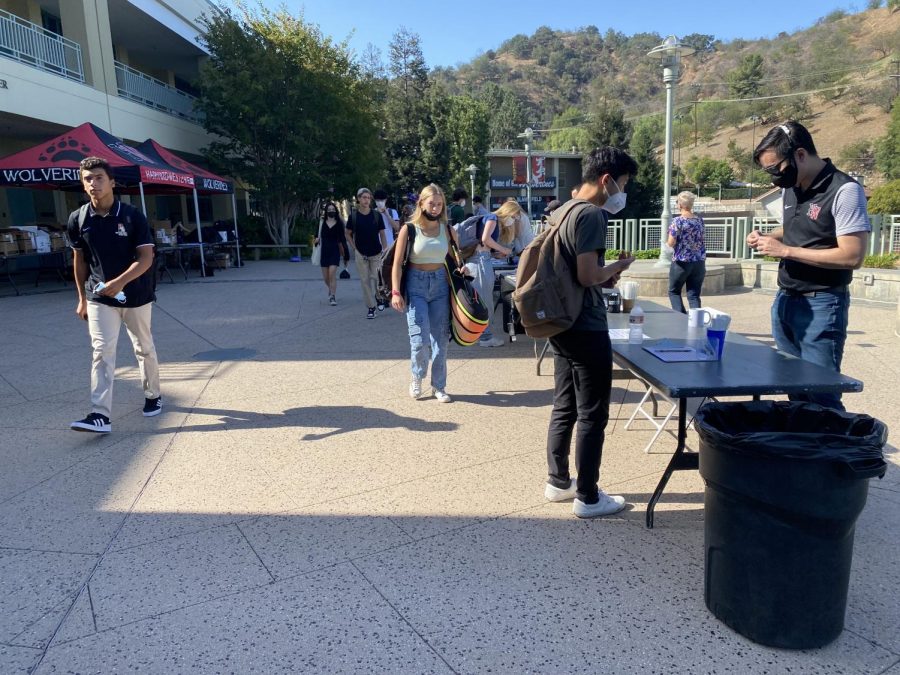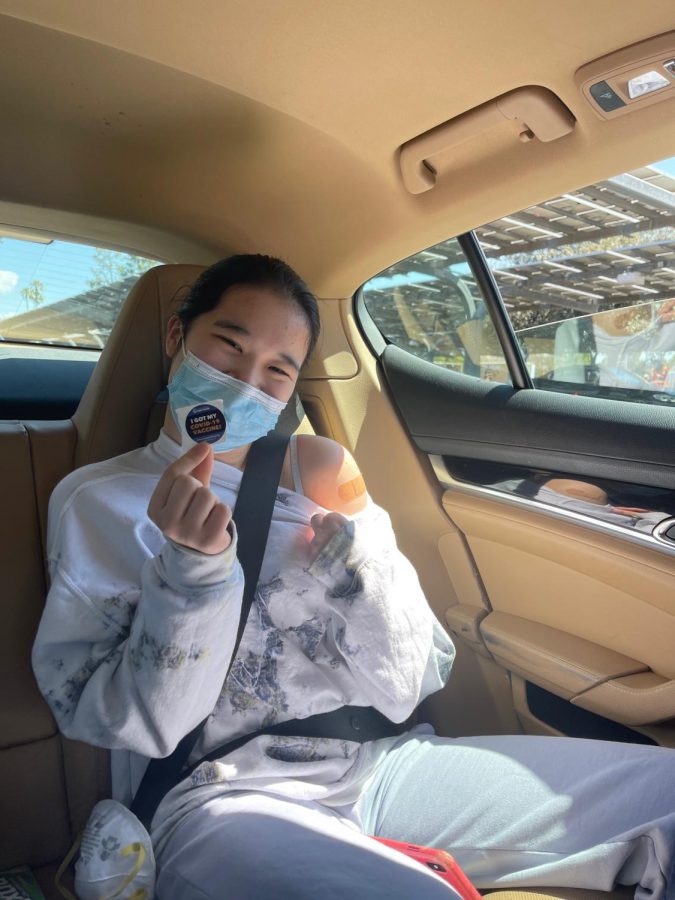Grammy award-winning musical artist Scott “Kid Cudi” Mescudi spoke about the stigma surrounding mental health in the black community in an all-school assembly hosted by the Black Leadership Awareness and Culture Club on Wednesday.
“People are struggling right now from mental illness,” Mescudi said. “They don’t have answers, and sometimes, music is all that’s there for somebody. It has always been my goal to reach out, to touch those people, and let them know they’re not alone.”
Less than three years ago, Mescudi wrote a Facebook post announcing his intent to check into a rehabilitation center for depression and suicidal urges.
Mescudi’s vulnerability in his music has both helped himself confront his past and created a unique outlet for listeners facing similar issues, he said.
“We wanted to bring someone that [all] sides could relate to, while still talking about something specific to the black community,” BLACC leader Leyah Barris ’19 said. “[The goal was] to bring awareness to the problems in the black community about mental health, and there needs to be more discussion about that.”
Discussion of mental health issues was not common until recently, Mescudi said. When he first started creating music, Mescudi addressed “darker” topics than he had not seen elsewhere in hip-hop.
“I was really scared when I dropped my first album,” Mescudi said. “I didn’t know [if] people in the world felt like me. I didn’t know how people would respond. It was always like tell your story, hope that someone out there feels the connection, the vibes [and] can feel you. That was the most important, from day one.”
Much of Mescudi’s popularity can be attributed to his courage to talk about issues that were largely stigmatized, Graham Berger Sacks ’20 said.
“He was one of the first guys to kind of talk about being an outcast, talking about mental health in his music,” Berger Sacks said. “I think that’s just so important and cool and different, and the message of his music is so good. He’s really just a creative genius to me.”
As one of the first artists addressing these issues, Mescudi said he initially felt pressure as the de facto spokesperson for those struggling with mental illness.
“I didn’t know if I was a role model, not going to college and stuff like that, but I had to be okay with that,” Mescudi said. “I had to realize no matter what, whether I like it or not, people look up to me. That’s a powerful thing and that’s a responsibility, and I have to live up to that responsibility.”
The club sought to change the perspectives students may have about who is qualified to address mental health issues, Barris said.
“There’s this stigma, especially in the black community, that rappers and artists aren’t as educated and formal, and we want to break that down,” Barris said. “[We are] not just bringing a celebrity down to be a celebrity, but we are bringing a celebrity to talk about something deeper than that. These are educated people, these are creative and smart people.”
Mescudi’s story helped to demonstrate the reality and prevalence of mental health issues, BLACC leader Sirus Wheaton ’19 said. The assembly helped bring a sense of humanity to his art, Wheaton said.
“People see him as Kid Cudi,” Wheaton said. “People don’t see him as Scott. [He] is more than just the musician. He is someone who is also deeply affected by mental health issues.”
The assembly brought a unique perspective in addressing the stigma surrounding mental health issues, Berger-Sacks said.
“It’s outside the box,” Berger-Sacks said. “Not a lot of other kids will have the opportunity to have someone like him speak at their school. I think it’s sending a great message to have someone who’s really an originator, someone who I think everyone at this school can really gain something from him speaking.”
Neema Mansouri ’20 said the assembly helped bridge the community through an appreciation of Mescudi and his message.
“I think it unites people as students,” Mansouri said. “I think it brings help to people who need help, and I think it’s really great for people who love Kid Cudi as much as I do.”
Mescudi said he hoped his story would give courage to students currently facing mental health issues.
“I’m living proof that you can get through it, you can make it, especially now,” Mescudi said. “Three years ago, I don’t know if I could have this conversation. I was really in a different place. I was wearing a mask. I know a lot of people in this room know what that feels like, in pretewnding to be happy. It’s a nightmare. You can get through. Here I am.”





























